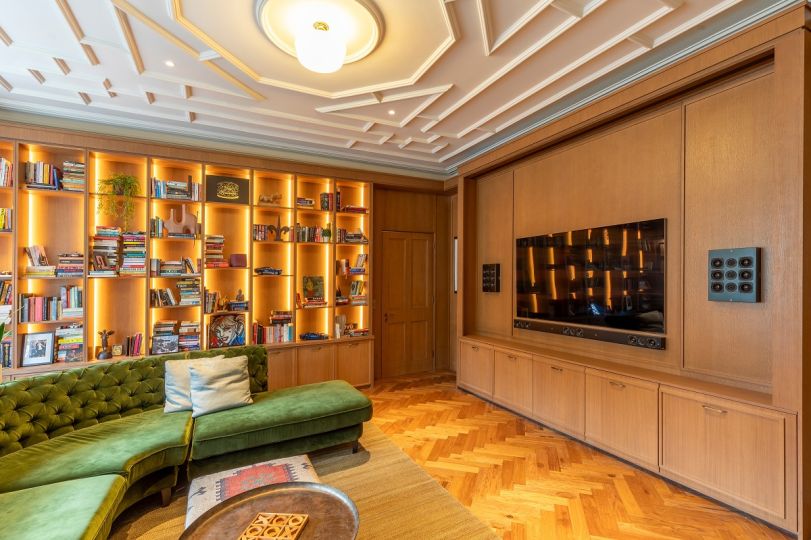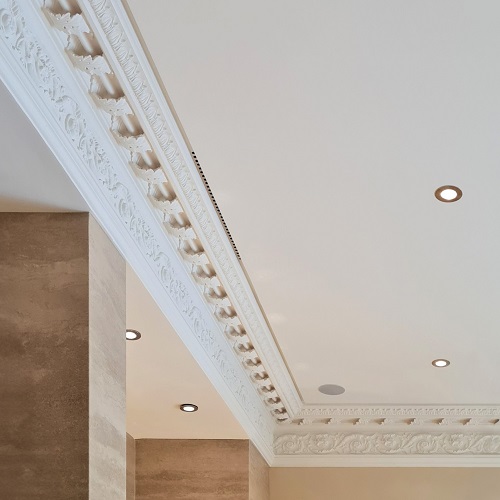
Air Conditioning at Home: everything you need to know

With summers getting hotter, it’s little surprise more homeowners are thinking seriously about air conditioning. But once you start looking into it, the questions come thick and fast – from deciding which system is best for your needs, to deciphering whether it’s even possible to install it in your Listed home.
To help answer your queries, we’ve sat down with experts to answer some of the most frequently asked questions about air conditioning.
How do I know what type of air conditioning is best for my home?
Charlie Longe, Builtain: “It’s not necessarily a question of what is best for your home, but what type of air conditioning is possible within the constraints of your home. Almost any type of property can have air conditioning installed, but some homes will just require a lot more work than others.
If you live in an apartment in central London, for example, there are strict rules around sound levels and visual impact of external condenser units, which may mean you need to look at water-cooled air conditioning. In houses, detached properties are easier to work with, but it’s still possible to install air conditioning in terraced homes – there might just be an extra hurdle or two to jump over. The pipes, for example, may need to be extra-long in order run a further distance to either the front or back of the building.
Regardless of the type of home you live in, you will always need to consider whether you have the physical space – within walls or ceilings – for pipework and ducting. This is something a specialist can easily advise you on.”
 Talking about pipework and ducting, is there a way to have air conditioning that doesn’t impact my interior design and aesthetic?
Talking about pipework and ducting, is there a way to have air conditioning that doesn’t impact my interior design and aesthetic?
Barry Smith, Calibre Climate: “Yes, absolutely! Whether you’re installing air conditioning as part of a full renovation or retrofitting it into a furnished and occupied home, the most important factor is getting a specialist involved as early as possible. That early input shapes how well the system integrates into the property - both in terms of performance and aesthetics.
In a renovation, a dedicated AC design specialist - different from a typical M&E consultant - can work closely with the wider team to develop a coordinated plan around access, concealment, and services, which is all based on the live design. When you’re retrofitting a home, the focus shifts to minimising disruption and protecting interiors, but the principle is the same: early, specialist design input is what ensures a discreet, effective system.
It’s worth choosing a contractor who can provide fully detailed design drawings that account for structural, joinery and plumbing implications. Ideally, they should be able to show examples of completed projects and ensure the result reflects what was agreed. That’s what helps avoid compromises like noisy systems or large visible grilles interrupting an otherwise carefully curated interior.
Just some of the ways we’ve recently concealed equipment includes hiding ducted units in joinery or integrating air terminals within coffered/rafted ceilings or cornice details. The options are essentially endless - if it’s approached the right way.”
Any advice for Listed homes or properties in a Conservation Area?
Barry Smith, Calibre Climate: “You’ll need a well-considered plan in place for installing air conditioning within a Listed building or Conservation Area. Planning permission or Listed Building Consent is often required, and apartments may also need freeholder or building management approval. If consent isn’t granted, water-cooled systems are sometimes used as a fallback, but they’re rarely ideal. They take up more internal space, reduce water pressure, and are typically less sustainable and more expensive to install and run. They’re generally only considered once all external-unit options have been fully ruled out.”
Will adding air conditioning increase the value of my property?
Guy Robinson, Head of Residential at Strutt & Parker: “Fitted air conditioning might not add value in the same way a loft conversion or extension might, but it can significantly enhance a home’s marketability. It’s the kind of ‘comfort feature’ that can help your home stand out – particularly as summers continue to heat up.”
Read our blog about the rising demand for air conditioning in homes. Or if you’re feeling inspired, here are homes for sale with air conditioning.
Header Credit: Ambigram Architects, Calibre Climate
Credit: Calibre Climate
